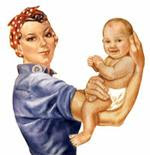In a previous posted titled,
5 P's of Marketing I first mentioned the Marketing Plan. I consider your job to be a major life decision and should include in-depth research and planning. In one year alone, a 4o hour a week full time employee spends 80 twenty-four hour days a year at work. Because your job is such an important part of your life form a time and financial factor, it should be treated as such. With proper planning, you can utilize your time more effectively and efficiently while looking for your new job.
Any good Marketing Plan involves the following:
I. BackgroundWhat are you looking to accomplish in your job search? What industry and position are you wanting to work in? Research comparable positions as well as their qualifications. Where have you been? Take these things into consideration and discuss your career history. Include any honors, awards, or major career achievements.
II. Revenue History and ForecastConsider your salary history and what salary you anticipate earning. What is the industry salary range for the position you are seeking?
III. Strategic IssuesWhat external factors could effect your success? Conduct an environmental scan which is a external look into factors that could positively or negatively impact your job search. Research unemployment, your geographic market, and education and certification requirements for the position you are interested in. Be realistic.
IV. CompetitionWho are you
competiting against in the job search? Is it newly graduated college students, those with a certification, or special skill? How do you stack up to profiles of your 5 competitors?
V. PricingAnalyze your past salary trends. Don't take the pie in the sky approach. Be realistic. If you are willing to take a lesser salary for a shorter commute, compressed workweek, part time or other benefits include these here. Consider how long you can go without work?
VI. Positioning StatementConsider everything above and put it all together. "I, Bob
Jenson am looking to secure a Telecommuting Marketing Analyst position in the Computer and Telecommunications Industries with a salary range of $40,000-75,000 within the next 6 months in the Kansas City, MO area.
VII. Marketing ObjectivesInclude 5-7 Marketing Channels in which you will Market yourself in the next 6 months (or whatever your timeline is). Be creative. A standard, I will apply for 5 positions on Monster daily will not do. Make sure to include the updating of your marketing and promotional materials including your resume,
coverletter, and business cards, Other objectives could include attend 5 networking events monthly, host a party, or volunteer at a local non-profit 5 hours a month.
VIII. Marketing BudgetHow much are you willing to spend in supplies, materials, and your time? List these materials and the estimated total cost. I recommend increasing that number by 10-20% as a best practice.
IX. Marketing ChannelsTake each Marketing Channel listed in the Marketing Objective outline your plan of attack with your timeline, project plan and costs associated with each channel.
X. Monthly CalendarBreak your activities down by month. Track your progress and costs associated monthly.
XI. SummaryThe essence of marketing is to do more of what works and less of what doesn't. Without having clearly established and measurable strategies, you will never learn from your successes and failures.
Realize that your Marketing Plan is the backbone of your goal of obtaining your dream job. It allows you to prepare, plan, and troubleshoot instead of just jumping in headfirst. The MP keeps you focused and organized with your one goal in mind.
Next week. . . A Two Part Blog on Online Social Networking.
Part I: Recruiter's Dirty Little Secret--Online Social Networking
Part II: Your Job Hunt & Online Social Networking





